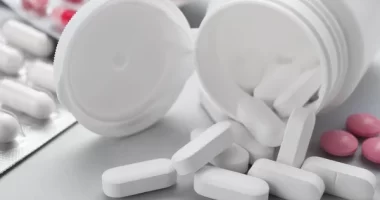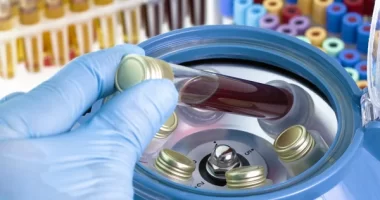Dandruff is a common condition and shouldn’t be a cause for concern.
It causes the skin on the scalp to flake leaving white flakes of skin in your hair and sometimes on your shoulders.
It isn’t contagious but it can be embarrassing and pesky to treat.
So what are some misconceptions around dandruff? Express.co.uk tells you all you need to know.
Read More: Can COVID-19 stress cause dandruff? Trichologist reveals how stress may be ruining your scalp
What are the common misconceptions around dandruff?
Does not enough/too much hair washing cause dandruff?
Stephanie Sey a Trichologist for Nizoral stresses how much you need to wash your hair will depend on several factors such as your activity levels and how your scalp behaves
If you have an oily scalp you may need to wash your hair far more than someone who does not.
She said: “If you are not washing your hair enough, your scalp will tell you about it; it will itch and possibly become flakey.
“Your hair will look lank and will not hold styles very well.”
Although the chances of dandruff may increase if you do not wash your hair enough, washing it more may not cause dandruff to go away as there may be other factors behind it.
Will dandruff go away naturally?
Dandruff can just go away naturally, but it may be best to treat it early as it can worsen over time.
Ms Sey adds: “Dandruff is a condition that can be treated but not cured.
“If you do struggle with dandruff, use a medicated shampoo”.
Also read: Dandruff symptoms: How to get rid of dandruff in one wash
Why is dandruff itchy?
Dandruff causes skin cells to accumulate and create flakes and itching.
It is a yeast called malassezia, which aggravates your scalp and cause excess skin cell growth, this excess growth produces the white flakes dandruff sufferers notice in their hair.
Ms Sey said: “Dandruff is itchy as this is the scalps inflammatory response to the overgrowth of the yeast, Malassezia”.
Will a white wine vinegar, lemon juice solution help to treat dandruff?
Many Brits in their desperation to treat their flakey scalps will throw this solution on their hair.
White vinegar and lemon juice are often touted as wonder products, in health and for cleaning but this isn’t the case for dandruff.
Some falsely say it helps to treat dandruff as it “balances the scalp’s pH”, but this solution can’t rid your scalp of these pesky flakes.
Can dandruff cause hair loss?
This is a common myth but dandruff does not cause hair loss.
But the inflammatory component of Seborrhoeic dermatitis can cause some excessive shedding of your hair.
Some dandruff sufferers may experience hair loss if they scratch their scalp too much, avoid the urge to itch as this can hurt the scalp which can lead to hair loss and breakage.
Ms Sey recommends the best treatment for dandruff is to use an anti-dandruff shampoo, she said this will treat the root cause of the problem it won’t just relieve the symptoms.
Post source Daily Express









